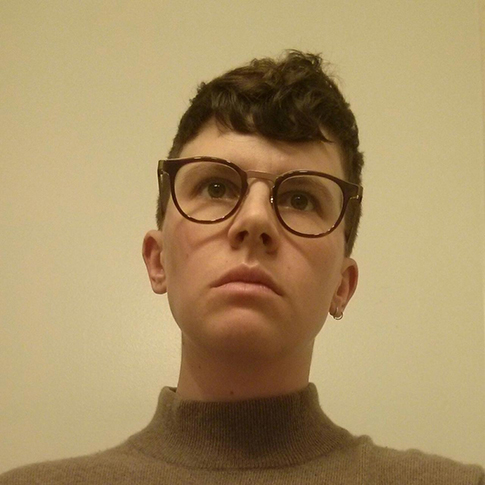Announcing the 2017 John Money Fellows
The John Money Fellowship for Scholars of Sexology was established by Dr. John Money in 2002 and is awarded annually to support the work of one or two graduate students whose research would benefit from the resources of the Kinsey Institute Collections. Fellows are also expected to contribute to the organization, preservation, and/or accessibility of Kinsey Institute collections.
Congratulations to our 2017 fellows Drew Clark-Huckstep and Joan Lubin, and honorable mentions Lital Pascar and Alanna Beroiza.

Drew Clark-Huckstep is a PhD candidate in the Department of History at Indiana University.
Drew's research focuses on the relationship between sex research and sexual identity development.
Over the next few months, he will be combing through the Masters and Johnson Collection at the Kinsey Institute, examining correspondence, professional files, images, and publications to trace changing uses of terms such as “sexual identity,” “sexual orientation,” and “sexual preference,” especially where used with correspondents who wrote the pair at their St. Louis clinic. The pair started their research in the mid-1950s examining human sexual response with an emphasis on physiology. They quickly realized their research had implications for treatments of sexual dysfunction. Through the 1960s and 1970s, Masters and Johnson advocated for a standardized treatment of sexual dysfunction, and developed their own acute program for couples. By the late 1970s, they were writing on homosexuality using data gathered during the 1950s and 1960s. Such work positions them as key figures in the field of sex research at the time sexual identity was becoming a social issue, especially with groups such as the Mattachine Society, the Daughters of Bilitis, and, later, the Gay Liberation Front.
While completing this research as part of his dissertation project, Drew hopes to create a visual history for the Institute to accompany the collection. Finding aids have long been a mainstay of historians and other visitors. Having an additional resource will help point researchers to key items within the collection, as well as others that might go overlooked. This history will utilize and highlight the unique photos and ephemera that are part of the collection.

Joan Lubin is a PhD Candidate in the Department of English at the University of Pennsylvania.
Joan's research project traces the emergence of the motif of science across the genres of gay pulp fiction, science fiction, b-movies, and contemporaneous sexology, sociology, anthropology, and demography by reading the print and visual culture that sutured these discourses to one another.
Taking a set of examples ranging from Alfred Kinsey’s Reports on human sexual behavior to Buckminster Fuller’s Operating Manual for Spaceship Earth, and novels by Samuel Delaney, Gore Vidal, Patricia Highsmith, and Philip Wylie, Joan demonstrates how genre fiction repurposed mathematical formalism in the service of social realism and developed modes of narrative representation for an age of statistical aggregation. Taking this approach enables her to read sexology as a vital participant in a network of professional, aesthetic, and methodological developments of the post-WWII era, and to situate Alfred Kinsey in particular as the harbinger of a new era of scientific investigation and catalyst to a new mode of literary representation.
The historical scope of Joan's dissertation spans what Philip Wylie nominated as “The Kinsey Epoch of the Atomic Age.” Leveraging “social science fiction” as a phrase situated between historical phenomenon and analytic category, each chapter pursues a site of representational negotiation between the postwar genre system and the professionalizing human sciences.
Honorable Mentions
Lital Pascar, Ph.D candidate in Rhetoric and Public Culture, Department of Communication Studies at Northwestern University.
Research topic: Privileging Intimacies: Media Representations of Consensual Monmonogamy
Alanna Beroiza, Ph. D candidate, Department of English, at Rice University.
Dissertation Research Topic: Out of Sight: Gender at the Intersection of Media and Biotechnologies
Support Kinsey
Love is more than an emotion. It is essential to our individual and collective well-being. Your support will help the Kinsey Institute advance research and education in the science of love and give a diverse field of researchers the resources they need to make new discoveries.
Pledge your support